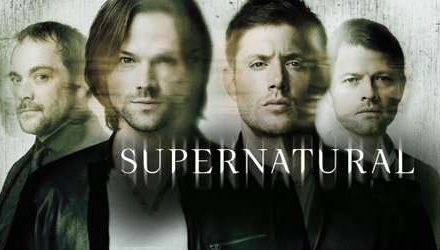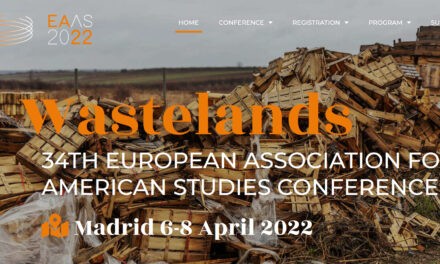Both articles and book reviews should be sent before September 1st 2020 to:
joelle.rouleau@umontreal.ca
jlesage@uoregon.edu
At first sight, “queer” and “television” might seem opposed. Indeed, “television” is a mass medium irrevocably bound up within the codes of capitalist forms of power, while “queer” has come to be defined as that which challenges and disrupts hegemonic forms and representations, expanding beyond binary distinctions within sexuality or gender toalign with multiple or transitioning identities (Butler, 2004, 2006; Bourcier, 2001; Muñoz, 2005; Halberstam, 2016). Television might seem inherently ill-suited for conveying queer sensibilities. As many media scholars have asked, what exactly does queer television mean (Villarejo 2014; Aaron 2008; Burnichon 2018; Coop 2018; G. Davis and Needham 2008; Miller 2019; Joyrich 2014; Himberg 2018; Kohnen 2015)? As Joyrich notes in her 2014 Cinema Journal article, the “inherent paradoxes of queer television studies […] emerge from the simultaneously constitutive but countermanding position of “the mainstream” in this nexus” (p. 134).
This call for papers asks: How can television be queer? The questions raised within this Special Issue Call derive from a number of recent observations: the emergence of LGBTQ+ characters on television—which increases the visibility and debate surrounding the queerness of specific shows, series, personalities, characters, etc. Or, as Quinn Miller argues, does queerness lie outside a show’s dominant narrative? Queer television is paradoxical, especially since subversive representations are increasingly appropriated by corporations for their profit-making potential. Can television hold space for complexity? Does it effect social change, especially in terms of gender? Or is the rise of queer television driven by demographic studies that suggest LGBTQ+ characters and stories are one ingredient in the recipe for corporate media success? This call is looking for papers asking: “where is the queer in queer television?” But also, where might queerness be located in or beyond overtly LGBTQ+ content?
With this call for papers, we wish to place emphasis on queer and trans scholarship and approaches.
Contributions:
Contributions can take the form of an article or a book review. The guidelines are as follows:
Articles:
Articles are expected to follow the editorial guidelines of the journal. The length of the articles should range between 20-30 pages, double spaced.
Book Reviews:
We are also looking for book reviews for which we would have the publishers send you a copy. Book reviews are expected to follow the editorial guidelines of the journal. Word count for a book review should range between 15-20 pages double spaced. Here are some titles but we are also open to suggestions:
- Albertson, C. (2018). A Perfect Union?: Television and The Winning of Same-Sex Marriage. Abingdon, Oxon; New York, NY: Routledge.
- Brennan, J. (2019). Queerbaiting and Fandom: Teasing Fans Through Homoerotic
Possibilities. Iowa City: University of Iowa Press. - Brey, I. (2018). Sex And The Series. Paris: Editions de l’Olivier.
- Cavalcante, A. (2018). Struggling For Ordinary: Media And Transgender Belonging In Everyday Life. New York: New York University Press.
- De Kosnik, A. & Feldman, K. P. (2019). #Identity: Hashtagging Race, Gender, Sexuality,
and Nation. Ann Arbor, United States: University of Michigan Press. - Halberstam, J. (2018). Trans: A Quick and Quirky Account of Gender Variability (1 ed).
Oakland, California: University of California Press. - Himberg, J. (2018). The New Gay for Pay: The Sexual Politics of American Television Production (Reprint edition). Austin: University of Texas Press.
- Hubier, S. & Le Vagueresse, E. (dir.). (2018). Séries télévisées: hybridation, recyclage,
croisements sémiotiques. Reims: Presses Universitaires Reims. - Jackson, K. & Belau, L. (dir.). (2018). Horror Television in the Age of Consumption: Binging on Fear. Routledge.
- Lovelock, M. (2019). Reality TV and Queer Identities: Sexuality, Authenticity, Celebrity
(1 ed). Cham: Palgrave Macmillan. - McCollum, V. & Monteverde, G. (2018). HBO’s Original Voices Race, Gender, Sexuality
and Power. London; New York: Routledge, Taylor & Francis group. - Miller, Q. (2019). Camp TV: Trans Gender Queer Sitcom History. Durham: Duke University Press.
- Parsemain, A. L. (2019). The Pedagogy Of Queer TV. Cham: Palgrave Macmillan.
- Pugh, T. (2018). The Queer Fantasies of the American Family Sitcom. New Brunswick, N.J.: Rutgers University Press.
- Pugh, T. (2020). Queering the South on Screen. Athens, Georgia: University of Georgia Press.
Deadline:
Both articles and book reviews should be sent before September 1st 2020 to:
joelle.rouleau@umontreal.ca
jlesage@uoregon.edu
References
Aaron, Michele. 2008. “Towards Queer Television Theory: Bigger Pictures sans the Sweet Queer-After.” In Queer TV : Theories, Histories, Politics, 14. London: Routledge. https://doi.org/10.4324/9780203884225-7.
Burnichon, Magali Claudine Dominique. 2018. “Queer TV? The Case of Showtime’s Queer as Folk and The L Word.” https://core.ac.uk/reader/195312295.
Coop, Marina. 2018. “#dontburythegays : Spectators’ Responses to Queer Women
Representation on Television.” Thesis, San Francisco State University.
http://dspace.calstate.edu/handle/10211.3/203811.
Davis, Davis. n.d. Queer TV : Theories, Histories, Politics.
Davis, Glyn, and Gary Needham, eds. 2008. Queer TV : Theories, Histories, Politics. London: Routledge. https://taylorfrancis.com/books/e/9780203884225.
Halberstam, Jack. 2018. Trans: A Quick and Quirky Account of Gender Variability. First edition. Oakland, California: University of California Press.
Himberg, Julia. 2018. The New Gay for Pay: The Sexual Politics of American Television Production. Reprint edition. University of Texas Press.
Joyrich, Lynne. 2014. “Queer Television Studies: Currents, Flows, and (Main)Streams.”
Cinema Journal 53 (2): 133-139,158.
Kohnen, Melanie. 2015. Queer Representation, Visibility, and Race in American Film and Television: Screening the Closet. Routledge.
Lovelock, Michael. 2019. Reality TV and Queer Identities: Sexuality, Authenticity, Celebrity.
Miller, Quinlan. 2019. Camp TV: Trans Gender Queer Sitcom History. Durham: Duke University Press.
Parsemain, Ava Laure. 2019. The Pedagogy of Queer TV.
https://public.ebookcentral.proquest.com/choice/publicfullrecord.aspx?p=5746949.
Pugh, Tison. 2018. The Queer Fantasies of the American Family Sitcom. Rutgers University Press. https://doi.org/10.2307/j.ctt1trkkgj.
Villarejo, Amy. 2014. Ethereal Queer: Television, Historicity, Desire. Durham; London: Duke University Press.





